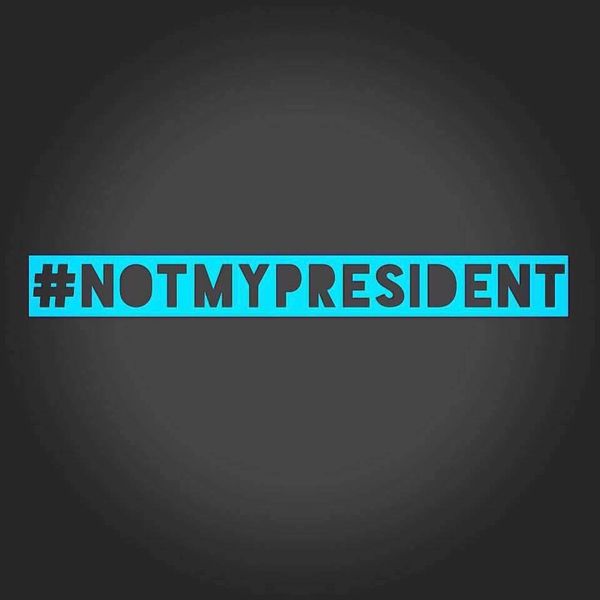I heard them whispering: “They’re pushing the crowds off the bridges… I don’t think they’re far from here now…”
I knew what they were talking about: it was inauguration day in Portland, and I was at the art museum. The employees spoke in low voices, worried about the proximity to the increasingly agitated crowds. They didn’t want what happened in D.C. to happen here.
I walked outside and everything seemed quiet: the city lights brushed red onto the sky – helicopters hummed over the buildings – a light rain fell on the empty streets. Sirens echoed between the buildings; I heard them before I saw them. I can be reckless and impulsive sometimes. Maybe it wasn’t the best decision, but I thought I should follow the sirens and see what was going on with the protesters.
I followed the police sirens through the streets until I heard a mass of voices around a corner. I looked and saw a scene straight out of a movie: thousands of people were gathered at Pioneer Square facing countless lines of police officers in riot control equipment. Some of the protesters looked militant; bats and flares and gas masks and bandannas, some were standing on pillars, others were holding signs, most were chanting and everyone was pissed off.
As I walked closer I heard someone say, “If we charged, we could take them all out – easy.” Pioneer Square was a living, moving, chanting battleground of anger… and I was there.
Shortly after I joined the protest a voice came on a loudspeaker. “This is an unlawful assembly. Leave now or we will use riot force to disperse you.”
The line of riot police looked even more militant – even more tense – than the protesters. Many hung on the backs of those military trucks holding rifles and batons. The protesters jeered, unmoved. Suddenly I heard four successive explosions on the other side of the square and saw a frantic mass of people running away. I learned later that the police had flashbanged part of the crowd.
I decided I should probably back away a little bit, so I retreated partially down the street to watch the protesters from a distance. Not five minutes later I heard a dull thump and saw the line of police launch gas into where I had just been standing. Pretty soon people began running away, clutching their eyes. I saw church organizations with bottles of milk for those who had been gassed. An older woman came up and asked if I needed any; she was the closest thing to peace I saw that night.
The whole time I was thinking: “Oh my god, this is class hatred.” All of the people I saw there were young and diverse and, more than anything, really pissed off. The tension in the air was spine-tingling – I was quite literally watching a local government use military force to suppress a protest. I was reminded of a line from Melville… “Beware the People weeping
When they bare the iron hand.”
I’ve always heard that people shouldn’t protest an inauguration – it’s not like they’re going to change anything. I’ve wondered the same thing: why protest? He’s the president; it’s done.
“Maybe it’s just expression. People have that right, right?” I said to my professor.
I’m in his office. From out of his cave of books he gave me a strange look that was only made more imperious by his long beard and thin circular glasses. “Never underestimate the rhetorical value of a protest. These things will be on his mind when he signs policy.”
“Beware the People weeping
When they bare the iron hand.”






















